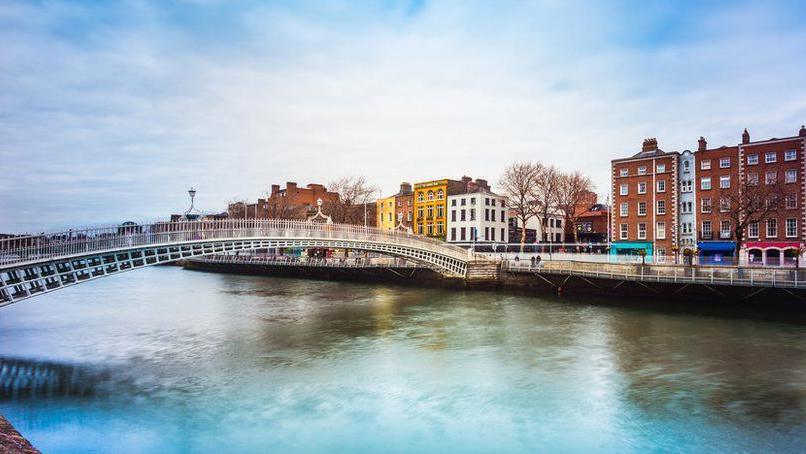Irish government agrees new pipeline to boost Dublin water supply

Dublin and the surrounding counties are heavily dependent on the River Liffey for water supply
- Published
The Irish government has agreed a €5bn (£4.2bn) project to build a water pipeline from the River Shannon to Dublin.
It says the development is necessary to support housing and economic growth.
It has described the 170km (105 miles) pipeline as "one of the largest and most important infrastructure projects in the history of the State".
Currently Dublin and its surrounding counties are heavily dependent on the River Liffey for water supply.
The government says this dependence on the Liffey and two treatment works in County Kildare has created a ‘serious vulnerability’ to risks such as prolonged drought or contamination in the country’s most heavily populated areas.
Housing Minister Darragh O’Brien said the agreement by ministers in the coalition government was "an important first step in what is a multi-billion euro project which will ensure a sustainable water supply for our country both now and into the future".
He added that it would fulfil one of the key recommendations in the recently published Housing Commission report on the need for urgent action on water supplies.
The project will involve abstracting water from the Shannon at Parteen Basin downstream of Lough Derg and piping it through counties Tipperary, Offaly, and Kildare to a reservoir at Peamount in County Dublin.
The idea of a water pipeline has been considered for more than a decade.
'Hundreds of options considered'
The government said that "hundreds of options have been considered" and the proposal approved by the Irish cabinet was "the culmination of extensive and detailed appraisal of potential solutions and alternatives, in addition to widespread stakeholder consultation".
However, the proposal is likely to face some opposition on environmental grounds from groups in the Shannon region.
The next stage is the project will be the submission of a planning application by the state-owned water company, Uisce Éireann.
Construction is expected to take around five years.